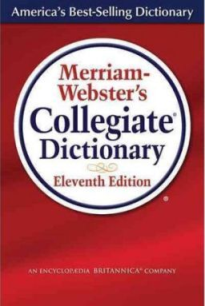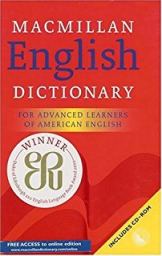To get the ball rolling for this forum, let me share with you my answers to six questions posed to me by readers of “English Plain and Simple,” my weekly column that comes out Saturdays in both the print and online editions of
The Manila Times.
Question #1: Do you say “Best wishes!” to an ailing person?Ms. Donna S. wrote from India: I would like to know: At the end of the letter, when you want to wish a person to get well soon, is it appropriate to say “Best wishes”? Or would that imply something else?
My reply to Donna:No, I don’t think it’s appropriate to say “Best wishes!” at the tail end of a get-well letter. That reminds me of an anecdote told to me by one of my staff. She recalled that during the wake of her late father, one of the family’s female acquaintances gently hugged her and whispered, “Happy condolences!” The remark was so shockingly inappropriate that my staff says she simply didn’t know how to react.
The much better way to end a get-well letter, I think, is to simply say “Do get well soon!” and close. (December 3, 2004)
IMAGE CREDIT: JOINCAKE.COMNever, never, never say “Best Wishes!” to an ailing person!
Question #2: Is “not unless” a redundant phrase?Mr. Joseph P.S. wrote:I wanted to ask if the phrase “not unless” is redundant. Isn’t the correct form only the single word “unless,” or are they both correct? My instructor told me about this, but I read a couple of books where “not unless” is used. I find this very confusing. (February 22, 2003)
My reply to Joseph:The usage of “not unless” is acceptable and not necessarily redundant, as in the following question-and-answer sequence: “Can I use copyrighted material for my book?” “
Not unless you have permission from the author or publisher.” In the answer, the phrase “
not unless you have permission” is the positive equivalent of the double-negative “
not if you don’t have permission.” In other words, “not unless” is functioning here as a negated preposition that means “not if you don’t,” yielding for the question-and-answer sequence this equivalent meaning: “Can I use copyrighted material for my book?” “
Yes, but you need to have permission from the author or publisher.” (March 5, 2009)
Question #3:Is the phrase “most often than not” correct usage?Dr. Tony B., M.D., wrote:I have heard some toastmasters, meaning those who are members of Toastmasters International (some are even English teachers), saying, “...most often than not...” I cringe when I hear that, aware that it should be “more often than not.” “Most often” should and could stand on its own. Could you enlighten me on this?
My reply to Dr. Tony:You’re absolutely right! The phrase “most often than not” is bad grammar. The correct usage is “most often” and, as you say, it can very well stand on its own without the comparative “than not.” When “most” is used with an adjective or adverb to form the superlative, as in the case of “most often,” it makes no semantic or logical sense to diminish the superlative aspect through further modification. Only with comparatives below the superlative, as in the case of “more often,” can further modification be made to indicate greater or lower degree (as in “more often than not,” “more often than expected,” and “more often than usual”).
You can tell your fellow Toastmasters and colleagues that this is why the phrase “more often than not” is semantically and logically correct, while “most often than not” is excruciatingly bad grammar and usage. (February 5, 2009)
Question #4: Which is correct, “on behalf”? or “in behalf”? “With regards to” or “in regards to”?Ms. Anita T. wrote from Canada: Will you please clarify the use of “on behalf” and “in behalf” in these sentences? “
On behalf of my family, I extend my best wishes to you all.” “
In behalf of my family, I extend my best wishes to you all.” I’d say “
On behalf of my [whatever].” Isn’t that right?
Another thing: Between “with regards to” and “in regards to,” which one is right?”
My reply to Anita:“On behalf” and “in behalf” are both correct usage, and today they tend to be used interchangeably, particularly in American English. But
The American Heritage Book of English Usage cites this traditional rule: use “on behalf of” to mean “as agent of, on the part of,” and use “in behalf” to mean “for the benefit of.” Examples: “Robert accepted the ‘Best Performer’ trophy
on behalf of his sister Angela, who was on a European singing tour.” “The Class of ’92 held a benefit concert
in behalf of the flood victims.” The two phrases are actually very close in meaning. In my case, I prefer “on behalf of” and will not worry about my choice at all.
As to “with regards to” and “in regards to,” both are unacceptable usage. In fact, the
Columbia Guide to Standard American English considers “with regards to” Nonstandard English. However, an idiomatic use close to that phrase—but definitely not the same phrase—is standard in complimentary closes to letters: “
With my best
regards...” “
With my
regards to your family...” Otherwise, ban “with regards to” completely from your writing and conversations.
The better connective expressions to draw a listener’s attention to something are “regarding” and “with regard to.” They are synonymous with “in relation to” and “with respect to,” both of which sound less stiff and more relaxed. There are, of course, two other acceptable variations of the “regard” phrases: “as regards,” and “in regard to.” The use of “as regards,” however, results in stiff business English, as in this sentence: “
As regards your proposal to hire another typist, I regret to say that it was disapproved.” Using “in regard to” is even stiffer, more officious, almost standoffish—as if the speaker were looking down on you from a high pedestal: “
In regard to your proposal to hire another typist, I regret to say that it was disapproved.” It is much better to say this: “
Regarding your proposal to hire another typist, I regret to say that it was disapproved.” Or this: “
With regard to your proposal to hire another typist, I regret to say that it was disapproved.” (March 7, 2003)
Question #5: When do you use “would” and when do you use “will”?Mr. Napoleon C. wrote:I’m not so sure which of these two sentences is grammatically right: “I hope that you would get well soon!” “I hope you will get well soon!”
Please tell me.
My reply to Nap:The first one is the grammatically correct sentence: “I hope that you
would get well soon!” Relative noun clauses that follow verbs like “hope,” “wish,” “expect,” and “dream” normally require the modal “would” for the verb rather than the future tense form “will.” This is to indicate that the action is just a wished-for thing and is not sure to happen or take place.
For the verbs “wish,” “expect,” and “dream,” therefore, we should similarly use the modal “would”: “I
wish that you
would get well soon!” “I
expect that you
would get well soon!” “I
dream that you
would get well soon!”
In contrast, when certainty is expressed that an action will occur, the future tense “will + verb” should be used: “I
am sure that you
will get well soon!” “I
am positive that you
will get well soon!” “I
am certain that you
will get well soon!”
The sentence “I hope you will get well soon!” is actually an elliptical form of the sentence “I hope that you will get well soon!” In this form of elliptical sentences, the conjunction “that” is dropped for brevity and ease of articulation. Nevertheless, the dropping of the conjunction “that” in such constructions doesn’t mean that the modal character of the expected action is changed to outright certainty. Thus, the elliptical sentence still requires the modal “would” to indicate that uncertainty: “I hope you would get well soon!”
Similarly, for the verbs “wish,” “expect,” and “dream,” we should use the modal “would” if we choose to make the sentences elliptical: “I
wish you
would get well soon!” “I
expect you
would get well soon!” “I
dream you
would get well soon!” (June 7, 2008)








